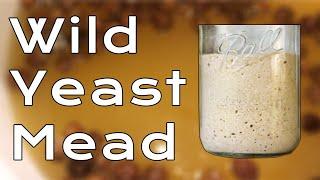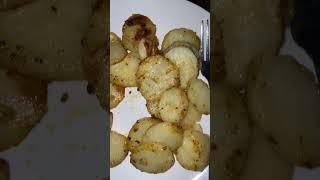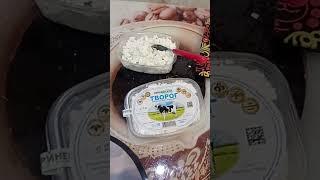Комментарии:

Next time you can add what CS Meads use, yeast hulls. This is dead yeast. If you want to keep it natural you can use dead yeast.
Ответить
I guess you couldve used a whole jug of raisins to grow a colony and then used the lees to ferment the mead
I’m using lees from a distillers yeast to experiment with my own fermenting.
Got my first 1.5L cold crashing now

Try with bees pollen, I ve done it successfully (starting with a low gravity session mead, and pitch in a bigger gravity mead for a second round)
Great video as always !

Could you use wild grapes/raisins to do this?
Ответить
In my experience, wild yeast mead requires more honey, more fruit (for more yeast)(like maybe that whole bag of raisins instead of the two hand scoops), and a lot more time. You don't really get anything from a wild fermentation with just a few days.
I have yet to add things like nutrients and energizers (cause so far I enjoy doing wild ferments), but I may give it a try for some fun experimenting.

Blend up, and use a bunch of grapes. Strain out the pulp in 3 days. Wild yeasts live on grapes. Great yeasts, to make a nice big starter.
Ответить
What can i use as yeast nutrient alternatives?thanks
Ответить
Thoroughly excellent work!
I'm busy going through your back catalogue and I appreciate your hard work and effort to share.
Power to your glass, bud!

The name "synthetic yeast" is not appropriate, what we buy are isolates or bred yeasts. Synthetic yeasts do exist, their genome has been heavily modified by synthetic biologists. Some parts were synthetized chemically.
(Sorry but my hobby is to tell people about the science they didn't ask for)

How do you stop a fermentation of hard cider or Meade once you hit the desired sweetness? I’ve cold crashed a cider, and added potassium sorbate yesterday, but it’s still fermenting.
Ответить
Hey man, love your channel you have helped me so much with getting started with mead making. And your videos prove what an exciting world the world of mead is with all it's variations and flavours. I like that you keep things simple which makes the hobby way more approachable in my opinion. Keep up the good work!
Ответить
the reason it when below 1.000 is the sugars in the raisins , also you do not need raisins to provide yeast for wild ferment, Honey has yeast stored inside when it is natural the concentration of of sugars mean they cant do anything, if just diluted with water you will it will ferment. you can also cover with a mesh that will keep flies out and wild yeast in the air can colonise,
To add natural nutrient you can use green plant matter (nitrogen is the main one needed) and add additional flavours, but do not use a lot of plants that are antimicrobial such as rosemary and some spices as many are antimicrobial and slow or stop fermentation.

Two days seems like you expect them to react like a Commercial Yeast.
Not knocking against giving them help.

I have noticed that most of your meads seem to finish at like 5-10 days....mine never seem to finish that fast (even with nutrient on my end) I'm wondering if your house temperature is helping or what?
I definitely like to let mine sit a while longer to clear but most of mine tend to still have bubbles coming up the sides consistently (like still fermenting) a month and sometimes two months later.

Why not ferment in the empty plastic water bottle? :)
Ответить
Raisins do in fact work as yeast nutrient you just need to give it longer for the colony to build up, also give the must a shake at least once a day to give them oxygen as the colony grows. I use about 1/5th cup, plus 1/8 of lemon slice, and organic honey with live yeast. I let my must grow it's yeast for about a week in the carboy with cloth covered top for oxygen (honestly it could probably go for less). Once you see a LOT of foaming when you shake it/ looks likes it'll explode if you shake it like a soda bottle, it's ready to airlock and stop shaking.
Ответить
I'm going to experiment with wild yeast next late spring. My strategy consists of leaving my must outside for 2 hours and then waiting a week. I've seen a historian do this and he says he gets a very high rate of success.
Also fruits have fibers and all sorts of things that yeast can't use that bad bacteria can. I would avoid using fresh fruits for wild fermentation especially if they haven't been pasteurized. A lot of plant diseases are in the form of mold so even if the fruit is resisting the mold that doesn't necessarily mean it does not have mold spores on it.
I'm not an expert and most of what I said is speculative so take it with a grain of salt but the logic appears sound.

please share the link of online gravity measurement, thank you
Ответить
There is guy on here called Coydog outdoors, He has mostly outdoor vids. but he did some vids. on wild mead some different theory's.
Ответить
I really enjoyed this. Thanks for being so detailed and also excited about what u are teaching. I think u have a wonderful captivating teaching ability. Can't wait to see more
Ответить
Could you use something of a sugar substitute maybe stevia it's a plant it's a sugar plant maybe the yeast wouldn't eat that sugar and it would make a sweeter batch I don't know I've never made Mead hoping u have the answer
Ответить
Oxygen doesn't help the yeast ferment. Yeast multiply better in an aerobic environment. They produce alcohol better in an anaerobic environment. So oxygenating helps build the colony.
Ответить
Hey! I am the guy who wrote you on Instagram! I am glad you are going wild! Hope to hear from you, to have a chat about it!
Ответить
Best way I have done a wild fermentation without adding any nutrients, including raisins, is to stir the must a couple times a day for about 4 or 5 days and it takes off and ferments. Also use a muslin cloth or cheese cloth over the bucket instead of the lid with an airlock
Ответить
Best way to get wild yeast going is to mix vigorously to introduce air. Do this every day (twice a day is best) for up to a week and you will get some great activity. Plus, you won't have any mold growth because when you mix the top back in, the mold can't grow. Once it's really active you can transfer to a carboy. I've had mine going for months and I periodically (every few months) rack it and add in some fresh crushed grapes to keep the fermentation strong. I'm still new to this, but that has worked for me. Open to other tips! Thanks!
Ответить
This will be useful in the apocalypse
Ответить
Wow, I type in "wild yeast for mead" and there you are,,, Cheers.😷
Ответить
Start with a higher gravity (more honey) to get more honey character, and shake/stir the must at least three times per day for the next 4-5 days to reintroduce oxygen until it really kicks up. I always use organic blueberries for my wild yeast. Never used any nutrients in my brews.
Ответить
I have a question. Is it possible to start a good, healty and solid mead with a fermenting honey?
Can I use some honey that is "starting fermenting" (I mean not acid yet)?

I am in the middle of a wild Ferment blueberry mead . I started with a half cup of blueberries, macerated and placed the shelf. mixing several times a day. after 4 days I added another half cup of macerated blueberries and a quarter cup 1.090 sugar wash. after two weeks there was significant activity. I macerated 6lb of thawed blueberries with 32oz organic blueberry juice. Pitched my wild starter and punched down the cap at lease three times a day. after 4 days, I mixed up a must of 10lb of clover honey with 3 gallons water. I strained the blueberries and squeezed out all the juice with the lees. after 5 hours I had a very actively fermentation as indicated by a constant bubbling. now we wait for it to finish.
Ответить
I haven't ever made any meads but I have made apple wine using what I call a fermentation starter. Which is a small mason jar, with a tablespoon of sugar and about a 1/4 cup raisins. Sit it on the counter with a lose lid and everyday add a teaspoon of sugar and shake it for 4 days. I don't put any other kind of nutrients or yeast. Just the apple juice sugar and fermentation starter. Sometimes I throw in some extra raisins. I have one going absolutely crazy bubbling right now, just like when I put in real yeast. I have also made a fermentation starter using dehydrated ginger. So it can work with nothing else. I will have to try it making a mead.
Ответить
I am Curious what program you use to calculate ABV, because I punched 1.060 into Beersmith using Honey as the sugar source and it spit out a potential ABV of 5.84%, so I am curious how you got 7.88%?
Ответить
Good evening. I wish people such as yourself would stop recommending wild yeast ferments.
Much of the world wild yeasts are very good. However parts of the world A wild yeast ferment is a TERRIBLE IDEA.
Last year getting yeast for wine. Beer, or even bread was NEXT TO IMPOSSIBLE. I still can’t get bread yeast in the stores here in Tucson, Arizona.
I had 2-3 grams of rapid rise yeast from being completely Out! So I tried four different yeast starters.
Dated in sugar water
Raisins in sugar water
Blueberries(from store) in sugar wate
A ginger bug
I started four small ferments (each holding a quart) of sugar water.
The ginger bug was going like gang busters buy did not ferment the must at all.
All of the other fermented the trial must. All of them were Un drinkable and tasted a lot like turpentine.
The wild yeast here in the desert Southwest SUCKS AND BLOWS

in my experience it can take 6 days to start and raw and I mean raw honey.
Ответить
"two handful is not necesserarily a scientific number" ...lives in a country measuring in inches. Sorry, for laughing in metric system 😇
Ответить
add a fresh squeezed lemon juice to get it going. You should only need raisins and lemon juice to get it going
Ответить
I plan on starting my mead with my best ginger bug. I cheated and threw a grape in there; I'd imagine you could get a similar result with a few of your raisins.
I keep them covered and stir them daily at feeding time, preventing mold growth or insect infestation. I have yet to have a bug go sour (in approximately a year, both with and without ginger). I've had great results with small beers and naturally fermented sodas using 1/4 c of bug per quart of must and slowing fermentation after a few days to a week or so.
Complex sugars like malts are, of course, more difficult, but I think mead will be very nice.
I was going to use double the amount (1/2 c) of bug when I make mead, but I have a very active one that is bubbling like crazy after only about 12 hours in a ginger beer, so I think I'm going to keep this bug, grow it for a week or so, and then start with the 1/4 c per quart and see how it goes.
The reason for my rambling is that I feel this would give you a more controllable result, without risking an entire batch of must each time; while also allowing you to be picky, and only use the best wild yeast that you cultivate, rather than relying on your raisins to provide entirely, with no middle man. Admittedly, i haven't watched your other videos (yet) and you may have already done this in the intervening time, so disregard as you please. Cheers!
Edit: I also sanitize my thumb, pop off my air lock, cover the hole and shake it pretty vigorously while it's in the carboy to aerate it for the first few days (I don't start in a separate container). I've heard it works, and in my unscientific reckoning it seems to speed things along a bit. Dealer's choice, I suppose.

Could yeast be coming off your hand ? This is interesting
Ответить
This is why norsemen probably used a lot of meadowsweet and similar herbs to their mead...that was the source of even more wild yeast plus nitrogen.
It's actually to this day a traditional way of making mead in Scandinavia.

I made a 3 gallon batch with only water and honey. You pretty much just need to shake/stir it every day for the first few days to introduce oxygen and prevent mold or bacteria from growing on the top.
It takes a couple days, but it works. I've gotten one to become active early on day 3.
There is natural yeast in unpasteurized raw honey, it's just not quite as active or abundant as the yeast you buy in packets.

check out Joam you will be suprised
Ответить
Take your honey water and place it outside for a day with a mesquito net over it. There is your wild yeast!
Ответить
I got a wild yeast culture last year from my graph vine. I took a small bundle of grapes and put them in a sanitized mason jar with spring water and a few spoonfuls of sugar. I covered it with a paper towel under the ring and let it go for about a week or two. I had to scoop off some mold that formed early on, but then it bubbled away. I then used it on a small batch of plain welch's grape juice wine and it went wild. I've since used it on 2-3 other batches and I keep it alive and well from time to time with some sugar if I keep in in the fridge. I think I've gotten close to 11-12 %. The best one I threw part of an oak spiral into and it's one of my wife's favorite that I've made so far
Ответить
As I said before if you use fresh fruit with the mead it makes a huge difference with very active wild yeast.
I have had up to 14% on wild yeast. As in UK we have very warm weather and my raspberry and a strawberry meads are fermenting well. One is on 11% so far and other 10%

I've been wild fermenting my meads and before I was adding any nutrients I was getting sulphur each time. I think adding organic nutrients like Fermiad-O is fine as it is still natural. The alternative to this may be adding various botanicals or even an open fermentation. Let the experiments begin!
Ответить
I made a wild yeast solution using store bought grapes. I crushed a handful of grapes, placed them in a Mason jar with water and a teaspoon of sugar . I watched for a week. Obviously I had yeast working in the sugar water. Made a gallon of apple wine using this yeast and apple juice. Wine is great and fermentation was clean. Very minimal caking in bottle of carboy.
Ответить
Coming late to this party. The term "wild yeast" is less appropriate than "indigenous yeast". Your honey - if raw, and the raisins if not blanketed with preservatives will both possess indigenous yeast. Indigenous yeast are not so much floating randomly but are yeast that live somewhat parasitically with the honey and with the raisins. The yeast that you pitch from packets are no more synthetic than tomatoes or peppers that you grow in your yard. Packs of yeast are simply cultured in labs. Each strain comes from specific fruits (or ales) and are then harvested and grown by labs to ensure the purity of the strain. Is that a good thing? Not always: indigenous yeast are naturally quite diverse and are as likely to contain significantly different kinds of yeast AND bacteria in ways that lab cultures do not. That CAN mean that while an indigenous fermentation CAN result in a mead or wine that we find other than very desirable, it can produce a very unique mead or wine. You might want to see if any of your batches of honey are "raw". I've successfully made a delightful traditional mead using raw honey from Brazil.
Ответить
can I used died old yeast (boiled in hot water) as nutrient?
as it a bit difficult for me to obtain yeast nutrient

Regarding nutrient, couldn't you have created a wild yeast fermentation starter from fruit, then once it's evident that there is yeast in the starter, heat the starter to kill the yeast in the starter (140 degrees F) creating yeast hulls. Let the heated (pasteurized?) solution cool to room temp. The yeast hulls can be used as nutrient for the live yeast in the must. OR, just start the yeast creation using a fruit fermentation starter and once it's going well (4-7 days?), then use it as part of the must for the mead.
Ответить
For anybody getting into wild ferment, It is safer when you make a starter in a small bottle from your must and your yeast source, lid closed. Start with lower density and step feed it, shake it every day for about a week. Once it gets crazy and creates quite a pressure every day, you pitch your starter. Or double the volume with your must and pitch half of it when it gets crazy again, save the other half for later. Use at least 1/10 of the total volume as a starter. If your starter contains solids like fruit peels, raisins, leaves etc, don't discard them. Yeast concentrates on the pores. Once your batch gets going then you can remove them.
Ответить


























